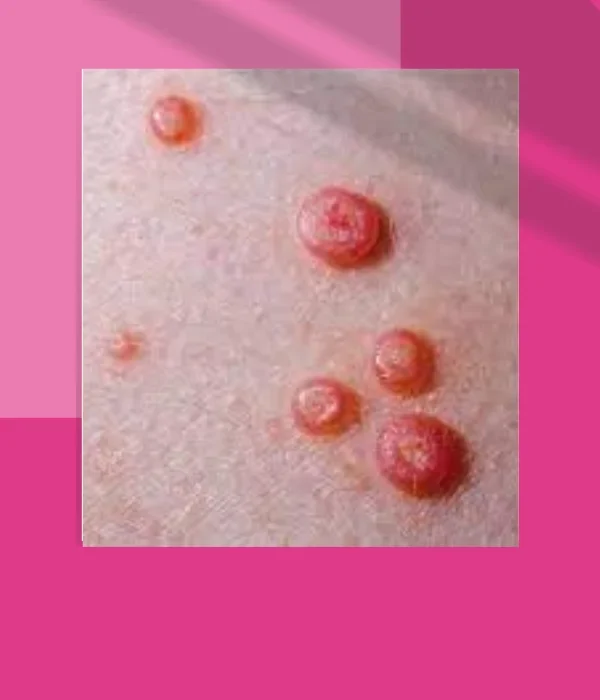Skin Viral Infection: Causes, Symptoms & Treatments
Skin viral infections are a common condition that affects people of all ages and backgrounds. These infections can cause a wide range of symptoms, from mild irritation to severe discomfort.

Skin viral infections are caused by a virus that penetrates the skin and causes an infection. These infections can affect any part of the skin and are usually contagious, meaning they can easily spread from one person to another. Skin viral infections can range from mild to severe, with symptoms ranging from a small rash to large, painful blisters.
Skin viral infections are caused by several types of viruses that can enter the body through small cuts, breaks, or abrasions on the skin. These viruses include the herpes simplex virus (HSV), human papillomavirus (HPV), molluscum contagiosum virus (MCV), and varicella-zoster virus (VZV). These viruses can be spread through close skin-to-skin contact, sexual contact, sharing personal items, or coming in contact with contaminated surfaces.
The symptoms of skin viral infections can vary depending on the type of virus causing the infection. However, some common symptoms include:
- Blisters or sores on the skin
- Itching or burning sensation
- Pain or discomfort
- Redness or swelling
- Fever or chills
There are several types of skin viral infections, each with their unique symptoms and causes. Here are some of the most common skin viral infections:
Herpes simplex virus (HSV)
Herpes simplex virus (HSV) causes cold sores or fever blisters on the lips, mouth, or genital area. These sores are highly contagious and can spread through close contact, such as kissing or sexual contact.
Human papillomavirus (HPV)
Human papillomavirus (HPV) causes warts on the skin or genital area. There are over 100 different types of HPV, some of which can cause cancer.
Molluscum contagiosum virus (MCV)
Molluscum contagiosum virus (MCV) causes small, flesh-colored bumps on the skin. These bumps are usually painless and can spread from person to person through skin-to-skin contact.
Varicella-zoster virus (VZV)
Varicella-zoster virus (VZV) causes chickenpox and shingles. Chickenpox is a highly contagious infection that causes a rash and fever. Shingles is a painful rash that usually occurs in older adults who have had chickenpox in the past.
A doctor can diagnose a skin viral infection by examining the affected area and performing tests, such as a viral culture or a blood test. In some cases, a biopsy may be necessary to confirm the diagnosis.
The treatment for skin viral infections depends on the type of virus causing the infection and the severity of symptoms. Here are some common treatment options:
Antiviral medications
Antiviral medications are often used to treat skin viral infections. These medications work by stopping the virus from multiplying, reducing the severity and duration of symptoms. Examples of antiviral medications include acyclovir, famciclovir, and valacyclovir.
Topical creams and ointments
Topical creams and ointments can help relieve the symptoms of skin viral infections, such as itching and burning. These medications can also help reduce the size and spread of the infection. Examples of topical creams and ointments include imiquimod, podophyllotoxin, and cantharidin.
Cryotherapy
Cryotherapy involves freezing the affected area with liquid nitrogen to destroy the infected tissue. This treatment is often used for warts caused by HPV.
Laser therapy
Laser therapy involves using a high-energy beam of light to destroy the infected tissue. This treatment is often used for skin viral infections that do not respond to other treatments.
Preventing skin viral infections is possible by taking certain precautions, such as:
- Washing hands regularly
- Avoiding close contact with people who have a skin viral infection
- Using condoms during sexual contact
- Not sharing personal items, such as towels or razors
- Keeping skin clean and dry
- Avoiding scratching or picking at the affected area
It’s important to seek medical help if you have symptoms of a skin viral infection. If left untreated, these infections can worsen and cause complications. Seek medical help if you experience:
- Severe pain or discomfort
- Signs of infection, such as fever or swelling
- Sores or blisters that don’t heal
- Warts that spread or change in appearance
- Rash that spreads or is accompanied by other symptoms
Are skin viral infections contagious?
Yes, most skin viral infections are contagious and can spread through skin-to-skin contact, sexual contact, sharing personal items, or coming in contact with contaminated surfaces.
Can skin viral infections be cured?
While there is no cure for most skin viral infections, treatment can help relieve symptoms and reduce the severity and duration of the infection.
How long do skin viral infections last?
The duration of skin viral infections varies depending on the type of virus causing the infection and the severity of symptoms. Some infections can last a few days, while others can last several weeks or months.
Are there any home remedies for skin viral infections?
While there are no proven home remedies for skin viral infections, certain measures can help relieve symptoms, such as keeping the affected area clean and dry, applying a cold compress, and avoiding scratching or picking at the affected area.
Can skin viral infections be prevented?
Yes, skin viral infections can be prevented by taking certain precautions. Here are some tips to prevent skin viral infections:
Practice good hygiene: Wash your hands regularly with soap and water. Keep your skin clean and dry. Avoid sharing personal items, such as towels or razors.
Avoid close contact with infected people: Skin viral infections can spread through skin-to-skin contact. Avoid close contact with people who have an active skin viral infection.
Use protection during sexual contact: Some skin viral infections, such as herpes and HPV, can be spread through sexual contact. Use condoms or dental dams during sexual contact to reduce the risk of infection.
Avoid touching your face: Touching your face can transfer viruses from your hands to your skin, increasing the risk of infection.
Boost your immune system: A strong immune system can help prevent skin viral infections. Eat a healthy diet, exercise regularly, and get enough sleep to keep your immune system functioning at its best.
By following these precautions, you can reduce your risk of developing a skin viral infection. If you do experience symptoms of a skin viral infection, seek medical help as soon as possible. Early treatment can help reduce the severity and duration of symptoms and prevent complications.
When choosing a skin clinic for skin viral infection treatment, it’s important to consider the following factors:
Experience and expertise: Veeha Skin Clinic has experienced and knowledgeable dermatologists, who specialize in treating skin viral infection.
Treatment options: We offers a variety of treatment options, such as topical medications, oral medications, light & laser therapy, so that you can find the best treatment for your individual needs.
Personalized treatment plans: We work with you to develop a personalized treatment plan that addresses your individual needs and concerns.
Quality of care: We have prioritizes patient safety, USA FDA approved lasers and uses high-quality, evidence-based treatments.
Reputation and reviews: We have good reputation and positive reviews from previous patients.
Location and Accessibility: We have well-located and accessible clinic so you can easily attend appointments and receive ongoing treatment as needed.
By considering these factors, you can choose Veeha Skin Clinic for skin viral infection treatment that best suit your individual needs and offers you effective and personalized skin viral infection treatment.
Book Now
Make An Appointment
Consult with Rajkot leading Dermatologist & Cosmetologist, Dr. Pratik Siddhapura M.D Skin. He has many years of experience in treating skin viral infection patients, he will evaluate your individual skin condition and discuss the treatment options with you. You may also send an Online consultation request by contacting us : https://veehaskinclinic.com/contact-us/. Our team will respond to your questions or appointment request as soon as possible.
Opening Hours
- 09.30 AM - 02.30 PM
- 04.30 PM - 08.30 PM
- Closed
Support
You can contact us through phone, whatsapp & email. Online video consultations are also available.

